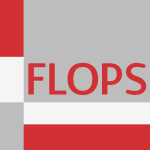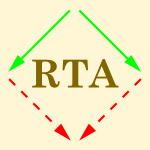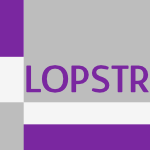50 papers:
 ECOOP-2015-LongLR #morphism #polymorphism
ECOOP-2015-LongLR #morphism #polymorphism- Intensional Effect Polymorphism (YL, YDL, HR), pp. 346–370.
 LICS-2015-CastellanCW #game studies #parallel
LICS-2015-CastellanCW #game studies #parallel- The Parallel Intensionally Fully Abstract Games Model of PCF (SC, PC, GW), pp. 232–243.
 PODS-2013-Wong #calculus #power of #relational #set
PODS-2013-Wong #calculus #power of #relational #set- A dichotomy in the intensional expressive power of nested relational calculi augmented with aggregate functions and a powerset operator (LW), pp. 285–296.
 KEOD-2013-KarolyA #implementation
KEOD-2013-KarolyA #implementation- The Implementation of a ReALIS-based Method of Static Intensional Interpretation (MK, GA), pp. 393–398.
 PADL-2013-FourtounisPR #functional #implementation #lazy evaluation
PADL-2013-FourtounisPR #functional #implementation #lazy evaluation- The Generalized Intensional Transformation for Implementing Lazy Functional Languages (GF, NP, PR), pp. 157–172.
 CSL-2013-WangB #decidability #equation #semantics #type system
CSL-2013-WangB #decidability #equation #semantics #type system- Semantics of Intensional Type Theory extended with Decidable Equational Theories (QW, BB), pp. 653–667.
 ICLP-J-2013-BartholomewL #on the #semantics
ICLP-J-2013-BartholomewL #on the #semantics- On the stable model semantics for intensional functions (MB, JL), pp. 863–876.
 LICS-2013-BirkedalM #fixpoint #recursion #type system
LICS-2013-BirkedalM #fixpoint #recursion #type system- Intensional Type Theory with Guarded Recursive Types qua Fixed Points on Universes (LB, REM), pp. 213–222.
 KEOD-2012-AliG #concept #named #novel
KEOD-2012-AliG #concept #named #novel- Conceptualization — A Novel Intensional-based Model (IA, HG), pp. 257–264.
 KR-2012-BartholomewL #modelling
KR-2012-BartholomewL #modelling- Stable Models of Formulas with Intensional Functions (MB, JL).
 KR-2012-Lifschitz #logic programming #source code
KR-2012-Lifschitz #logic programming #source code- Logic Programs with Intensional Functions (VL).
 SAC-2010-EbraertDMJ #feature model
SAC-2010-EbraertDMJ #feature model- Intensional changes: modularizing crosscutting features (PE, TD, TM, DJ), pp. 2176–2182.
 ICSE-2009-GhezziMM #behaviour #graph transformation #modelling
ICSE-2009-GhezziMM #behaviour #graph transformation #modelling- Synthesizing intensional behavior models by graph transformation (CG, AM, MM), pp. 430–440.
 TLCA-2009-Lumsdaine #type system
TLCA-2009-Lumsdaine #type system- Weak ω-Categories from Intensional Type Theory (PLL), pp. 172–187.
 PPDP-2008-MarionP #complexity #polynomial
PPDP-2008-MarionP #complexity #polynomial- Characterizations of polynomial complexity classes with a better intensionality (JYM, RP), pp. 79–88.
 POPL-2008-Asperti #theorem
POPL-2008-Asperti #theorem- The intensional content of Rice’s theorem (AA), pp. 113–119.
 SIGMOD-2007-SrivastavaV #metadata
SIGMOD-2007-SrivastavaV #metadata- Intensional associations between data and metadata (DS, YV), pp. 401–412.
 GPCE-2006-VieraP #analysis #multi
GPCE-2006-VieraP #analysis #multi- A multi-stage language with intensional analysis (MV, AP), pp. 11–20.
 ICSE-2006-WillmorE #approach #database #specification #testing
ICSE-2006-WillmorE #approach #database #specification #testing- An intensional approach to the specification of test cases for database applications (DW, SME), pp. 102–111.
 ICSM-IT-2005-MensKPW
ICSM-IT-2005-MensKPW- The Intensional View Environment (KM, AK, FP, RW), pp. 81–84.
 CSL-2005-Lambov #analysis #complexity #framework
CSL-2005-Lambov #analysis #complexity #framework- Complexity and Intensionality in a Type-1 Framework for Computable Analysis (BL), pp. 442–461.
 HT-2004-PlaiceM #collaboration #hypermedia
HT-2004-PlaiceM #collaboration #hypermedia- Collaborative intensional hypertext (JP, BM), pp. 91–92.
 FLOPS-2004-Munoz-HernandezMM
FLOPS-2004-Munoz-HernandezMM- Constructive Intensional Negation (SMH, JM, JJMN), pp. 39–54.
 SEKE-2004-LiW #education
SEKE-2004-LiW #education- An Intensional Tool Applied to French Language Educational Software (H(L, WWW), pp. 62–67.
 SIGMOD-2003-MiloAABN #xml
SIGMOD-2003-MiloAABN #xml- Exchanging Intensional XML Data (TM, SA, BA, OB, FDN), pp. 289–300.
 ICLP-2003-DovierPR #set
ICLP-2003-DovierPR #set- Intensional Sets in CLP (AD, EP, GR), pp. 284–299.
 ESOP-2002-Weirich #analysis #higher-order
ESOP-2002-Weirich #analysis #higher-order- Higher-Order Intensional Type Analysis (SW), pp. 98–114.
 CAiSE-2002-PontieriUZ #approach #data flow #integration
CAiSE-2002-PontieriUZ #approach #data flow #integration- An Approach for Synergically Carrying out Intensional and Extensional Integration of Data Sources Having Different Formats (LP, DU, EZ), pp. 752–756.
 RTA-2002-LiangN #representation #trade-off
RTA-2002-LiangN #representation #trade-off- Tradeoffs in the Intensional Representation of λ Terms (CL, GN), pp. 192–206.
 ESOP-2001-Weirich #analysis #encoding
ESOP-2001-Weirich #analysis #encoding- Encoding Intensional Type Analysis (SW), pp. 92–106.
 POPL-2001-Sangiorgi #logic
POPL-2001-Sangiorgi #logic- Extensionality and Intensionality of the Ambient Logics (DS), pp. 4–13.
 LICS-2001-Pfenning #proving #type system
LICS-2001-Pfenning #proving #type system- Intensionality, Extensionality, and Proof Irrelevance in Modal Type Theory (FP), pp. 221–230.
 ICFP-2000-TrifonovSS #analysis #reflexive
ICFP-2000-TrifonovSS #analysis #reflexive- Fully reflexive intensional type analysis (VT, BS, ZS), pp. 82–93.
 VLDB-1999-KnorrN
VLDB-1999-KnorrN- Finding Intensional Knowledge of Distance-Based Outliers (EMK, RTN), pp. 211–222.
 LICS-1999-Altenkirch #similarity #type system
LICS-1999-Altenkirch #similarity #type system- Extensional Equality in Intensional Type Theory (TA), pp. 412–420.
 ICFP-1998-CraryWM #morphism #polymorphism #semantics
ICFP-1998-CraryWM #morphism #polymorphism #semantics- Intensional Polymorphism in Type-Erasure Semantics (KC, SW, JGM), pp. 301–312.
 ICFP-1997-RichardST #set #using
ICFP-1997-RichardST #set #using- Intensional Sets Using Explicit Substitutions (GR, FS, ATA), p. 318.
 CIKM-1997-YoonSP #data mining #mining #query #using
CIKM-1997-YoonSP #data mining #mining #query #using- Intensional Query Processing Using Data Mining Approaches (SCY, IYS, EKP), pp. 201–208.
 PODS-1996-BertinoC #database #static analysis
PODS-1996-BertinoC #database #static analysis- Static Analysis of Intensional Databases in U-Datalog (EB, BC), pp. 202–212.
 POPL-1995-BrookesD #algorithm #parallel
POPL-1995-BrookesD #algorithm #parallel- Sequential Algorithms, Deterministic Parallelism, and Intensional Expressiveness (SDB, DD), pp. 13–24.
 POPL-1995-HarperM #analysis #compilation #morphism #polymorphism #using
POPL-1995-HarperM #analysis #compilation #morphism #polymorphism #using- Compiling Polymorphism Using Intensional Type Analysis (RH, JGM), pp. 130–141.
 ICLP-1994-BruscoliDPR #compilation #set
ICLP-1994-BruscoliDPR #compilation #set- Compiling Intensional Sets in CLP (PB, AD, EP, GR), pp. 647–661.
 LOPSTR-1992-Giacomo #partial evaluation #query
LOPSTR-1992-Giacomo #partial evaluation #query- Intensional Query Answering: An Application of Partial Evaluation (GDG), pp. 132–150.
 ICLP-1991-ChenW #abstraction #logic #multi #set
ICLP-1991-ChenW #abstraction #logic #multi #set- An Intensional Logic of (Multi-Arity) Set Abstractions (WC, DSW), pp. 97–110.
 LICS-1991-HungZ #logic #pointer #semantics
LICS-1991-HungZ #logic #pointer #semantics- Semantics of Pointers, Referencing and Dereferencing with Intensional Logic (HKH, JIZ), pp. 127–136.
 CADE-1990-Tuominen #framework #logic #proving #theorem proving
CADE-1990-Tuominen #framework #logic #proving #theorem proving- Dynamic Logic as a Uniform Framework for Theorem Proving in Intensional Logic (HT), pp. 514–527.
 CLP-1990-Bry90 #abduction #deduction
CLP-1990-Bry90 #abduction #deduction- Intensional Updates: Abduction via Deduction (FB), pp. 561–575.
 VLDB-1989-Motro #constraints #query #relational #using
VLDB-1989-Motro #constraints #query #relational #using- Using Integrity Constraints to Provide Intensional Answers to Relational Queries (AM), pp. 237–246.
 SIGIR-1988-LaineLV #information management #logic
SIGIR-1988-LaineLV #information management #logic- French Textual Information Systems: The Contribution of Extensional and Intensional Logics (SL, OL, IV), pp. 507–518.
 OOPSLA-1988-Beech #concept #database
OOPSLA-1988-Beech #concept #database- Intensional Concepts in an Object Database Model (DB), pp. 164–175.
 ECOOP-2015-LongLR #morphism #polymorphism
ECOOP-2015-LongLR #morphism #polymorphism LICS-2015-CastellanCW #game studies #parallel
LICS-2015-CastellanCW #game studies #parallel PODS-2013-Wong #calculus #power of #relational #set
PODS-2013-Wong #calculus #power of #relational #set KEOD-2013-KarolyA #implementation
KEOD-2013-KarolyA #implementation PADL-2013-FourtounisPR #functional #implementation #lazy evaluation
PADL-2013-FourtounisPR #functional #implementation #lazy evaluation CSL-2013-WangB #decidability #equation #semantics #type system
CSL-2013-WangB #decidability #equation #semantics #type system ICLP-J-2013-BartholomewL #on the #semantics
ICLP-J-2013-BartholomewL #on the #semantics LICS-2013-BirkedalM #fixpoint #recursion #type system
LICS-2013-BirkedalM #fixpoint #recursion #type system KEOD-2012-AliG #concept #named #novel
KEOD-2012-AliG #concept #named #novel KR-2012-BartholomewL #modelling
KR-2012-BartholomewL #modelling KR-2012-Lifschitz #logic programming #source code
KR-2012-Lifschitz #logic programming #source code SAC-2010-EbraertDMJ #feature model
SAC-2010-EbraertDMJ #feature model ICSE-2009-GhezziMM #behaviour #graph transformation #modelling
ICSE-2009-GhezziMM #behaviour #graph transformation #modelling TLCA-2009-Lumsdaine #type system
TLCA-2009-Lumsdaine #type system PPDP-2008-MarionP #complexity #polynomial
PPDP-2008-MarionP #complexity #polynomial POPL-2008-Asperti #theorem
POPL-2008-Asperti #theorem SIGMOD-2007-SrivastavaV #metadata
SIGMOD-2007-SrivastavaV #metadata GPCE-2006-VieraP #analysis #multi
GPCE-2006-VieraP #analysis #multi ICSE-2006-WillmorE #approach #database #specification #testing
ICSE-2006-WillmorE #approach #database #specification #testing ICSM-IT-2005-MensKPW
ICSM-IT-2005-MensKPW CSL-2005-Lambov #analysis #complexity #framework
CSL-2005-Lambov #analysis #complexity #framework HT-2004-PlaiceM #collaboration #hypermedia
HT-2004-PlaiceM #collaboration #hypermedia FLOPS-2004-Munoz-HernandezMM
FLOPS-2004-Munoz-HernandezMM SEKE-2004-LiW #education
SEKE-2004-LiW #education SIGMOD-2003-MiloAABN #xml
SIGMOD-2003-MiloAABN #xml ICLP-2003-DovierPR #set
ICLP-2003-DovierPR #set ESOP-2002-Weirich #analysis #higher-order
ESOP-2002-Weirich #analysis #higher-order CAiSE-2002-PontieriUZ #approach #data flow #integration
CAiSE-2002-PontieriUZ #approach #data flow #integration RTA-2002-LiangN #representation #trade-off
RTA-2002-LiangN #representation #trade-off ESOP-2001-Weirich #analysis #encoding
ESOP-2001-Weirich #analysis #encoding POPL-2001-Sangiorgi #logic
POPL-2001-Sangiorgi #logic LICS-2001-Pfenning #proving #type system
LICS-2001-Pfenning #proving #type system ICFP-2000-TrifonovSS #analysis #reflexive
ICFP-2000-TrifonovSS #analysis #reflexive VLDB-1999-KnorrN
VLDB-1999-KnorrN LICS-1999-Altenkirch #similarity #type system
LICS-1999-Altenkirch #similarity #type system ICFP-1998-CraryWM #morphism #polymorphism #semantics
ICFP-1998-CraryWM #morphism #polymorphism #semantics ICFP-1997-RichardST #set #using
ICFP-1997-RichardST #set #using CIKM-1997-YoonSP #data mining #mining #query #using
CIKM-1997-YoonSP #data mining #mining #query #using PODS-1996-BertinoC #database #static analysis
PODS-1996-BertinoC #database #static analysis POPL-1995-BrookesD #algorithm #parallel
POPL-1995-BrookesD #algorithm #parallel POPL-1995-HarperM #analysis #compilation #morphism #polymorphism #using
POPL-1995-HarperM #analysis #compilation #morphism #polymorphism #using ICLP-1994-BruscoliDPR #compilation #set
ICLP-1994-BruscoliDPR #compilation #set LOPSTR-1992-Giacomo #partial evaluation #query
LOPSTR-1992-Giacomo #partial evaluation #query ICLP-1991-ChenW #abstraction #logic #multi #set
ICLP-1991-ChenW #abstraction #logic #multi #set LICS-1991-HungZ #logic #pointer #semantics
LICS-1991-HungZ #logic #pointer #semantics CADE-1990-Tuominen #framework #logic #proving #theorem proving
CADE-1990-Tuominen #framework #logic #proving #theorem proving CLP-1990-Bry90 #abduction #deduction
CLP-1990-Bry90 #abduction #deduction VLDB-1989-Motro #constraints #query #relational #using
VLDB-1989-Motro #constraints #query #relational #using SIGIR-1988-LaineLV #information management #logic
SIGIR-1988-LaineLV #information management #logic OOPSLA-1988-Beech #concept #database
OOPSLA-1988-Beech #concept #database









